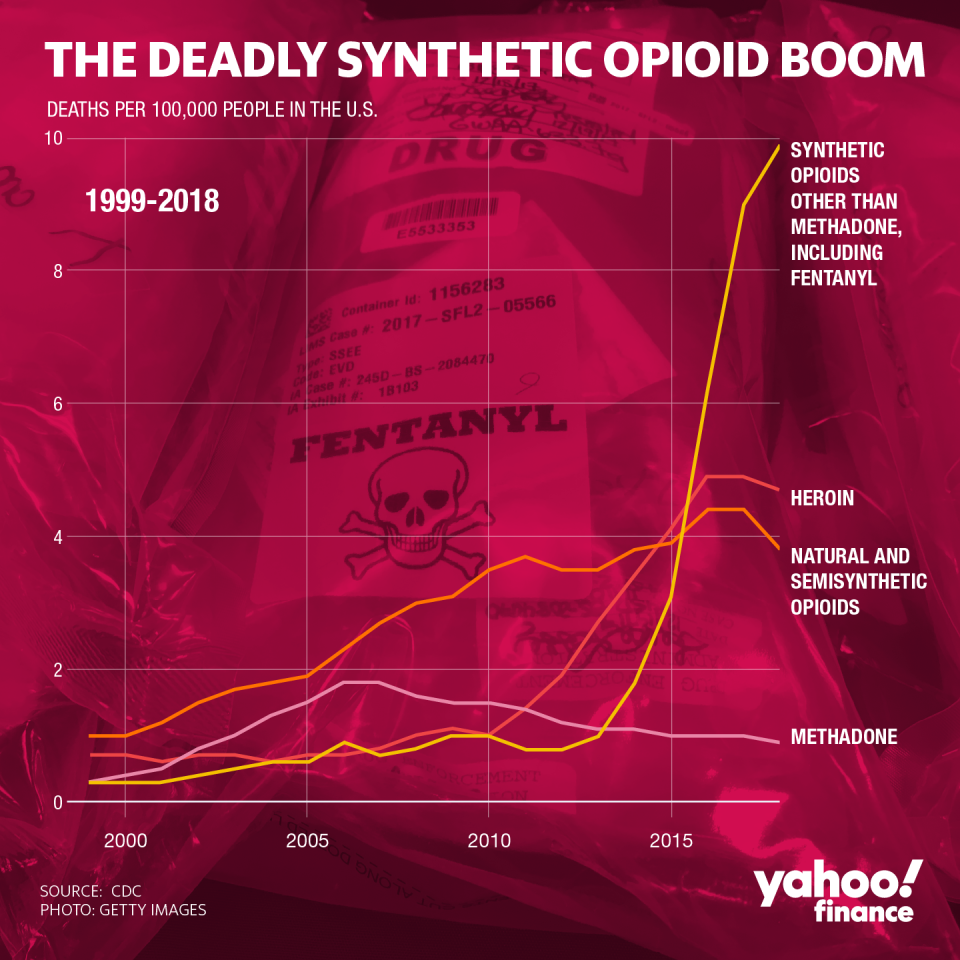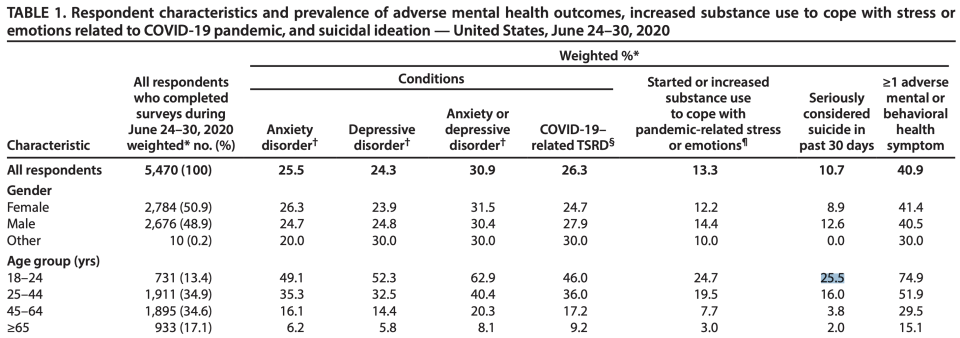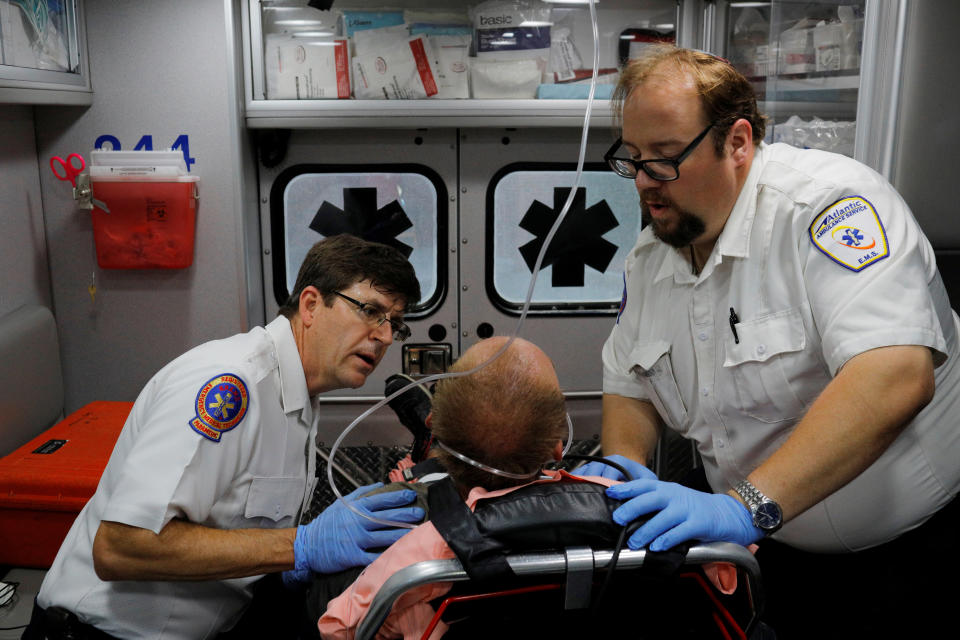2020 is 'a perfect storm' for substance abuse and 'it's really scary'
Public health experts previously worried that the coronavirus pandemic “threatens to make the opioid crisis” substantially worse.
And data from the Wall Street Journal appears to be validating that concern, highlighting how counties across the U.S. reporting rises in fatal overdoses in 2020.
“The opioid epidemic that we were already battling coupled with a health pandemic, it's a perfect storm for an increase in the number of people who will develop a substance use disorder,” Gina Carroll, director of nursing services at Gallus Medical Detox, told Yahoo Finance’s The Ticker (video above). “We're likely to see alarming numbers this year in those increases, most of it brought on by stress and financial, emotional stress from the pandemic.”

The number of fatal overdoses in 2018 was 67,367, according to the CDC, a 4.1% decline from 2017, which was the first decline in 29 years. Although total opioid overdose deaths were down in 2018, overdose deaths from synthetic opioids, like fentanyl, are continuing to rise.
“Synthetic opioids have been a huge problem,” Carroll said. “It's on the rise. Whether it's easier to access them now or prices have dropped, you know, it's a little bit unclear. But the synthetic opiates are out of control. And it's really hard to kind of find out how to battle that on the street, but we're bringing in people everyday who are on fentanyl tablets. And it's kind of an unknown.”
Adding to these issues are the mental health effects of the pandemic, which have created intense situations for many who were already grappling with substance use disorder.
“We think differently,” Carroll said. “We act differently. It's essentially changed our personalities. People are turning to alcohol and drugs more and more. So we've seen an increase in alcohol detox and opiate detox. It's really scary.”

‘Alarming’ numbers
An August 2020 report from the CDC found that 13% of individuals had either started or increased their substance use throughout the pandemic.
“It's alarming,” Carroll said. “We've seen an increase in patients returning to our facility for detox that had been successful with their battle with addiction. With the social distancing guidelines, sober gatherings and contact with sober friends and other people has come to a halt. So you know, what they're used to doing every day to stay sober is — it's essentially gone. So again, relapse is a thing we've been seeing, which is terrible.”

The mental health effects of the pandemic have become increasingly troubling. The same CDC report found that 25.5% of respondents between the ages of 18 and 24 had seriously considered suicide within the past 30 days. Many adults are finding themselves battling with not only suicide ideation but also depression and anxiety symptoms.
“There's definitely more people who are new onset substance use disorder from the stress at home — their uncertainty, their education and what's the future for their children,” Carroll said. “A lot of people are working from home. It's very easy to turn to alcohol during the day.”
Disruption of care
Disruption of care also plays a major role in the increase in opioid use. A journal article for the Annals of Internal Medicine that detailed the specific effects of the pandemic on those seeking treatment for opioid use disorder.
“For persons already in treatment,” the paper noted, “one of the biggest threats is disruption of care.”
For example, patients can’t attend peer support groups that may be critical to their recovery, because groups of large people are currently banned. It may also be difficult for these patients to obtain counseling from clinics or obtain their medications.

And for those that do go into clinics, they are at higher risk of experiencing serious complications if they contract COVID-19.
“We know that it’s been well-documented that when people lose their jobs, when people have major stresses in their lives, this all increases the at-risk population, and I think the pandemic fits in,” Tommy Begres, a firefighter paramedic based out of Michigan, previously told Yahoo Finance.
Adriana is a reporter and editor covering politics and health care policy for Yahoo Finance. Follow her on Twitter @adrianambells.
READ MORE:
Startling CDC stat about young adults highlights effect of coronavirus pandemic on mental health
Coronavirus pandemic 'threatens to make the opioid crisis substantially worse'
The opioid crisis is 'a unique product' of U.S. health care, paper argues
Read the latest financial and business news from Yahoo Finance
Follow Yahoo Finance on Twitter, Facebook, Instagram, Flipboard, SmartNews, LinkedIn, YouTube, and reddit.


